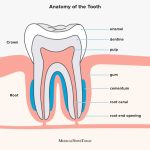Stomping Foot Pain: Understanding Why Your Teeth Hurt When You Stomp

Stomping foot pain is a common phenomenon that many people experience, but few understand. Have you ever noticed that your teeth hurt when you stomp your feet? This is not a coincidence, and there is a scientific reason behind it. Understanding why our teeth hurt when we stomp can help us prevent this discomfort and take better care of our bodies. The stomping foot pain is caused by the vibration that travels through the bones in our feet and up into our jawbone. This vibration stimulates the nerves in our teeth, causing them to vibrate as well. The intensity of the vibration can vary depending on the force of the stomp and the surface we are stomping on. If we stomp too hard or on a hard surface, the vibration can be severe and cause significant discomfort in our teeth. By understanding the cause of this phenomenon, we can take measures to reduce the discomfort and prevent potential dental issues that may arise from it.
Stomping foot pain can be a frustrating and uncomfortable experience, causing a sharp or dull ache in the foot with every step. The pain can be caused by a variety of factors, including injury, overuse, or improper footwear. Plantar fasciitis is a common cause of foot pain, which occurs when the ligament that runs from the heel to the toes becomes inflamed. Other conditions that can lead to foot pain include flat feet, high arches, and arthritis. It’s important to see a healthcare professional if foot pain persists, as they can provide proper diagnosis and treatment options to alleviate the discomfort. In the meantime, taking measures such as resting the foot, icing the affected area, and wearing supportive shoes can provide some relief.
Teeth hurting when stomping can be a surprising symptom and one that may leave individuals confused and concerned about their dental health. However, this is often a result of referred pain, where the sensation of discomfort in one area is felt in another part of the body. In this case, the impact of stomping creates a shockwave that travels up the leg and through the body, causing the teeth to vibrate and potentially leading to discomfort or pain. While this is generally a harmless symptom, it is important to speak with a medical professional or dental practitioner if the pain persists or becomes severe, as it could be indicative of an underlying issue.
Understanding the cause of pain is essential in addressing and treating the issue effectively. In the case of stomping foot pain and the resulting discomfort in teeth, identifying the root cause of the problem can help in determining the appropriate remedy. It could be due to a misalignment of the jaw, a nerve sensitivity issue, or even a sinus infection. By pinpointing the cause of the pain, a healthcare professional can provide a specific diagnosis and treatment plan, instead of simply addressing the symptoms. Without understanding the underlying cause, the pain may persist, and the individual may continue to suffer needlessly. Therefore, it is crucial to seek medical attention and determine the underlying cause of the pain to alleviate the symptoms and prevent any long-term complications.
The Anatomy of Teeth
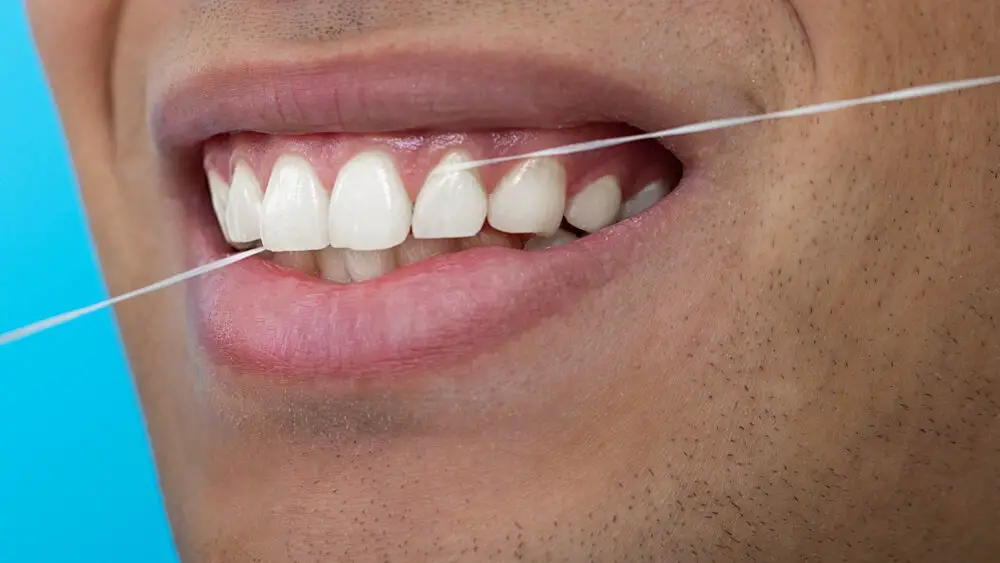
The anatomy of teeth is a complex and fascinating subject that involves understanding the different structures that make up our teeth. Teeth are made up of three layers: enamel, dentin, and pulp. The enamel is the outermost layer and serves as a protective covering for the tooth. It is the hardest substance in the human body and is responsible for protecting the tooth from decay and damage. The dentin is the second layer and is softer than the enamel. It is made up of tiny tubes that run from the pulp to the enamel and helps to transmit sensations to the pulp. The pulp is the innermost layer of the tooth and contains blood vessels, nerves, and connective tissue. It is responsible for supplying the tooth with nutrients and oxygen and for transmitting sensations to the brain. When we stomp our feet, the vibration can cause pain in our teeth. This is because the teeth are connected to the bone of the jaw, which is in turn connected to the skull. When we stomp our feet, the vibration travels up through the bone and can cause the teeth to vibrate as well. This can cause pain in the teeth, especially if there is a problem with the enamel or dentin. It is important to take care of our teeth by brushing and flossing regularly and visiting the dentist for checkups and cleanings. By understanding the anatomy of teeth and how they are connected to the rest of the body, we can better understand and care for our oral health.
The structure of teeth is complex, with different layers and tissues working together to create a strong and functional dental system. The outer layer, known as enamel, is the hardest substance in the human body and protects the underlying dentin layer, which contains sensitive nerve endings. Below the dentin lies the pulp, which is made up of blood vessels, nerves, and connective tissue. The roots of the teeth are anchored in the jawbone by cementum, and the supporting periodontal ligament helps to keep them in place. Each tooth is also surrounded by gum tissue, which provides protection and support. Understanding the intricate structure of teeth is essential for proper dental care and can help to prevent pain and discomfort, including tooth sensitivity caused by stomping foot pain.
Teeth are not simply hard, white structures in our mouth; they are complex organs with an intricate network of nerves and blood vessels. This network is responsible for the sensation we feel when we bite into something cold or hot, and the pain we experience when we have a toothache. The dental pulp, located deep inside the tooth, contains the nerves and blood vessels that connect the tooth to the rest of the body. When the dental pulp is inflamed or infected, it can cause severe pain and discomfort. This is why stomping your foot can create a jarring sensation that travels up to your teeth, as the shockwaves from the foot stomp can stimulate the nerves in the dental pulp.
Teeth are an essential part of the digestive system that plays a vital role in the process of chewing and biting. They are responsible for breaking down food into smaller pieces to facilitate digestion and absorption of nutrients in the body. The teeth are designed to perform specific functions based on their location in the mouth. The incisors are responsible for biting and cutting, while the molars are used for grinding and crushing. The premolars are a combination of both functions. When stomping or putting pressure on your feet, it can cause a chain reaction that can lead to pain in the teeth due to the interconnected nerves between the feet and teeth. Therefore, taking care of both your feet and teeth is essential for maintaining overall health and avoiding unnecessary pain.
The Mechanics of Stomping
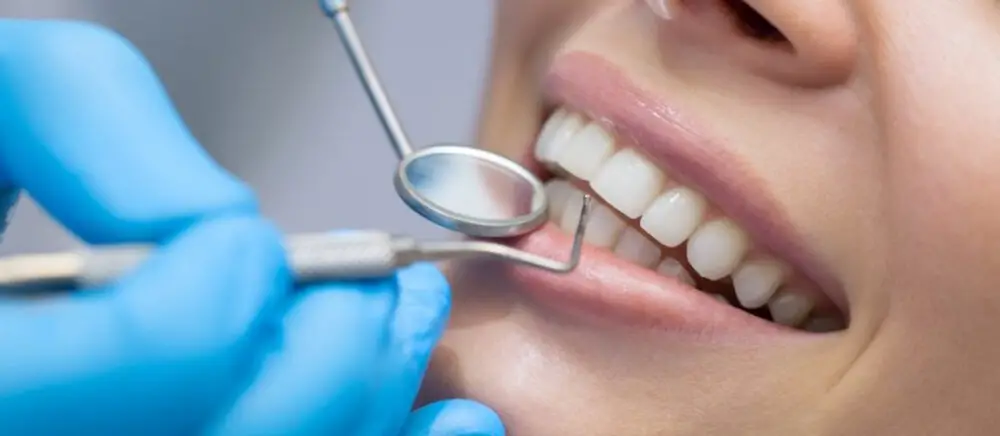
Stomping is a common human behavior that involves striking one’s foot against the ground with force. This mechanical action is often associated with emotional expression, such as anger, frustration, or excitement. The mechanics of stomping involve several complex physiological processes. When a person stomps their foot, the impact of their foot on the ground sends a shock wave up through their leg, causing the muscles to contract and the bones to vibrate. This vibration can cause pain, discomfort, and even damage to the bones and tissues in the foot and leg. The mechanics of stomping can be further impacted by a variety of factors, including the type of surface being stomped on, the footwear being worn, and the strength and weight of the individual. For example, stomping on a hard surface, such as concrete, can produce a greater shock wave than stomping on a softer surface, such as grass. Similarly, wearing shoes with insufficient support or cushioning can increase the impact of the shock wave and cause greater discomfort. Understanding the mechanics of stomping can help individuals better manage and prevent foot pain associated with this behavior.
Stomping is a physical act that involves forcefully bringing down one’s foot onto a hard surface. This action creates a significant impact on the foot, which can cause pain and discomfort if done repeatedly or with excessive force. The act of stomping is often associated with expressing frustration, anger, or excitement, and is commonly seen in dance performances or sports events. However, stomping can lead to various foot injuries, such as plantar fasciitis, stress fractures, and shin splints. It is essential to understand the causes and effects of stomping to prevent foot pain and maintain foot health.
Stomping generates a significant amount of force that can be felt not only on the feet but also on other parts of the body, including the teeth. The force is created by the weight of the body and the velocity at which it is exerted on the ground. When the foot hits the ground, the bones and muscles in the foot and leg experience a shock wave that travels up through the body. This shock wave can cause teeth to vibrate, leading to discomfort or pain. The force generated by stomping can also cause damage to the feet, especially if the stomping is done on hard or uneven surfaces. Therefore, it is essential to be mindful of how much force is being exerted while stomping to prevent foot pain and other related issues.
The human body is a complex structure that can transmit force through various systems to perform different functions. When it comes to stomping foot pain, the transmission of force through the body becomes particularly important. The force generated by the foot during stomping is transmitted through the bones, joints, and muscles of the foot and leg. The foot has a complex network of bones and joints that work together to absorb and distribute the force generated by stomping. The muscles of the foot and leg also play a crucial role in the transmission of force by stabilizing the joints and controlling the movement of the foot. However, when there is an issue with any of these systems, such as an injury or misalignment of the bones, the force generated by stomping can cause pain and discomfort in other parts of the body, including the teeth. Understanding the transmission of force through the body is crucial in identifying the root cause of stomping foot pain and developing effective treatment strategies.
The Connection Between Stomping and Teeth Pain
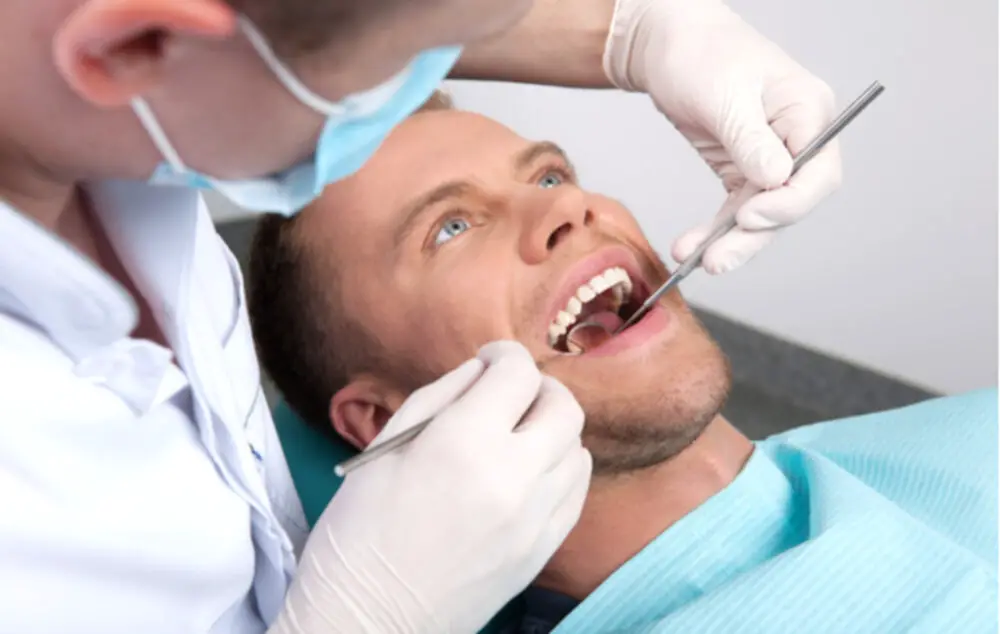
Have you ever experienced teeth pain when you stomp your feet? It may seem like an odd correlation, but there is a connection between the two. Stomping can cause a shockwave that travels through your body and reaches your teeth, leading to discomfort and pain. The reason for this lies in the way our bodies are structured. Our teeth are not simply anchored into our gums; they are connected to the rest of our body through a network of ligaments and nerves. When we stomp our feet, the shockwave travels through these ligaments and nerves, causing the teeth to vibrate. This vibration can be enough to trigger pain or discomfort, especially if you have sensitive teeth or existing dental issues. So, the next time you feel teeth pain while stomping, don’t be alarmed – it’s a perfectly normal reaction to the shockwave your body is experiencing.
Stomping foot pain can be a strange phenomenon for those who experience it. It is not uncommon for people to feel a jarring sensation in their teeth when they stomp their feet. This unusual association between stomping and teeth pain can be explained by the way sound waves travel through the body. When a person stomps their foot, the sound waves created by the impact travel up through the bones in the leg and into the jawbone. This can cause a vibration that resonates in the teeth, leading to discomfort or pain. Additionally, those with pre-existing dental issues or temporomandibular joint disorders may be more susceptible to experiencing teeth pain when stomping their feet. Understanding the relationship between stomping and teeth pain can help individuals alleviate discomfort and seek appropriate treatment if necessary.
The effect of force on teeth can be quite significant and can cause pain and discomfort. When you stomp your foot, the force travels through your body and can cause your teeth to vibrate. This can result in tooth pain or sensitivity, especially if you have weak or damaged teeth. Additionally, clenching your teeth in response to the force can lead to further discomfort and even tooth damage. It is important to take care of your teeth and seek dental treatment if you experience any pain or discomfort, especially after activities that involve force or impact.
Nerves play a crucial role in transmitting pain signals from the site of injury or discomfort to the brain. Pain receptors, also known as nociceptors, are located throughout the body, including in the feet. When these receptors are activated by an injury or trauma, they send electrical signals through nerve fibers to the spinal cord and then to the brain. The brain interprets these signals as pain, which can range from mild discomfort to intense agony. The nervous system is incredibly complex, and pain signals can be influenced by a variety of factors, including genetics, environment, and emotional state. By understanding the role of nerves in pain transmission, we can better understand and manage foot pain, as well as other types of pain throughout the body.
Preventing and Treating Stomping Foot Pain
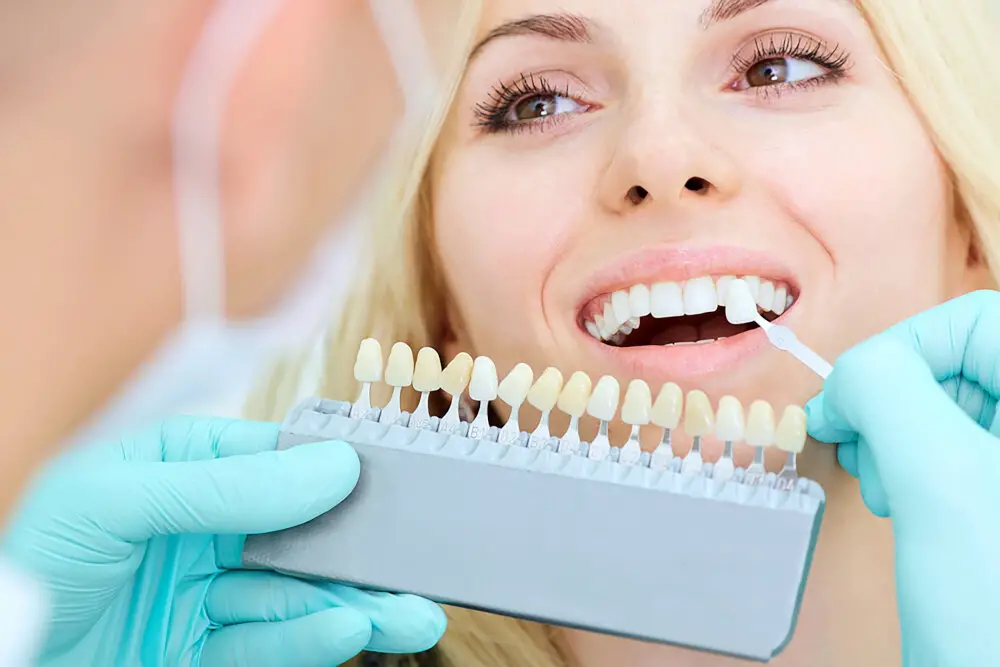
Stomping foot pain can be an excruciating experience that may hinder your daily activities. There are several ways to prevent and treat this condition, ranging from simple home remedies to medical interventions. Prevention is always better than cure, and one of the best ways to prevent foot pain is by wearing properly fitting shoes with good arch support. This helps to distribute your body weight evenly on your feet and prevent excessive pressure on specific areas. Additionally, maintaining a healthy weight, staying active, and doing regular stretching exercises can help to improve foot flexibility and prevent pain. If you are already experiencing foot pain, there are several treatment options available. Resting your feet and applying ice to the affected area can help to reduce inflammation and pain. Over-the-counter pain medications such as ibuprofen or acetaminophen can also be used to manage pain. However, if the pain persists or worsens, it is advisable to seek medical attention. Your healthcare provider may recommend physical therapy, orthotics, or other interventions depending on the underlying cause of the pain. With proper care and treatment, you can alleviate stomping foot pain and get back to your daily activities pain-free.
Stomping foot pain can be a real nuisance, but there are several things you can do to prevent it. One of the most important tips is to wear comfortable and supportive shoes that fit properly. Additionally, stretching and warming up before any physical activity can help prevent foot pain. Maintaining a healthy weight and avoiding high-impact activities can also help reduce the risk of foot pain. If you do experience foot pain, rest, ice, compression, and elevation (RICE) can help alleviate symptoms. Finally, if the pain persists or becomes severe, it’s important to seek medical attention to rule out any underlying conditions or injuries.
When it comes to reducing pain, there are a variety of home remedies that can be effective. For foot pain specifically, soaking your feet in warm water with Epsom salt can help to reduce inflammation and ease sore muscles. Applying ice or a cold compress to the affected area can also help to reduce swelling and numb the pain. Additionally, elevating your feet can help to promote blood flow and reduce pressure on the painful area. Certain natural remedies, such as turmeric and ginger, have anti-inflammatory properties that can also help to reduce pain. However, it is important to consult with a healthcare professional if the pain persists or worsens.
If you experience foot pain when stomping, it is important to seek medical attention if the pain persists for more than a few days or is accompanied by other symptoms such as swelling, redness, or difficulty walking. Ignoring foot pain can lead to further complications and may require more invasive treatments in the future. A healthcare professional can properly diagnose the cause of the pain and provide appropriate treatment options, which may include rest, physical therapy, or medication. It is also important to address any underlying health conditions that may be contributing to the foot pain. Seeking medical attention early can help prevent further damage and allow for a faster recovery.
The article \Stomping Foot Pain: Understanding Why Your Teeth Hurt When You Stomp\ explains the phenomenon of dental pain experienced when stomping or jumping. It is caused by the pressure waves generated by the impact of the foot hitting the ground, which travel through the body and reach the teeth, creating discomfort. The article also highlights the importance of proper footwear to minimize the impact on the feet and prevent foot and dental pain. Additionally, it recommends consulting a dentist if the pain persists or worsens. Overall, the article offers valuable insights into a little-known but common issue that affects many people.
Suffering from stomping foot pain can severely impede one’s ability to perform daily activities with ease and comfort. Ignoring the pain and hoping it will subside on its own can lead to further complications, affecting not only the feet but also the back, knees, and ankles. Seeking treatment from a medical professional is crucial in identifying the underlying cause of the pain and receiving appropriate treatment. Failure to do so can result in chronic pain, reduced mobility, and a decreased quality of life. Therefore, it is essential to seek prompt medical attention to address stomping foot pain and prevent any further complications.
In conclusion, foot pain can have a significant impact on our daily lives, affecting our ability to move and participate in activities we enjoy. Understanding the underlying causes of foot pain, including the relationship between foot and dental health, can help individuals take proactive steps towards managing and preventing these issues. Regular visits to both a dentist and a podiatrist can aid in early detection and treatment of potential problems. Additionally, maintaining a healthy lifestyle, including proper footwear and regular exercise, can also contribute to the prevention of foot pain. By taking these measures, individuals can stomp out their foot pain and enjoy a more comfortable and active life.
Conclusion

In conclusion, foot stomping can cause discomfort not only in the feet but also in other parts of the body, including the teeth. The shock waves created by the impact of the foot hitting the ground can travel through the bones and reach the teeth, causing them to vibrate and feel painful. It’s essential to understand the connection between foot stomping and dental pain to avoid any unnecessary discomfort. Taking care of our teeth and feet by wearing proper shoes and maintaining good oral hygiene is crucial to prevent any pain or injury. Therefore, it’s essential to be mindful of our body’s needs and take necessary actions to prevent any unnecessary discomfort.





